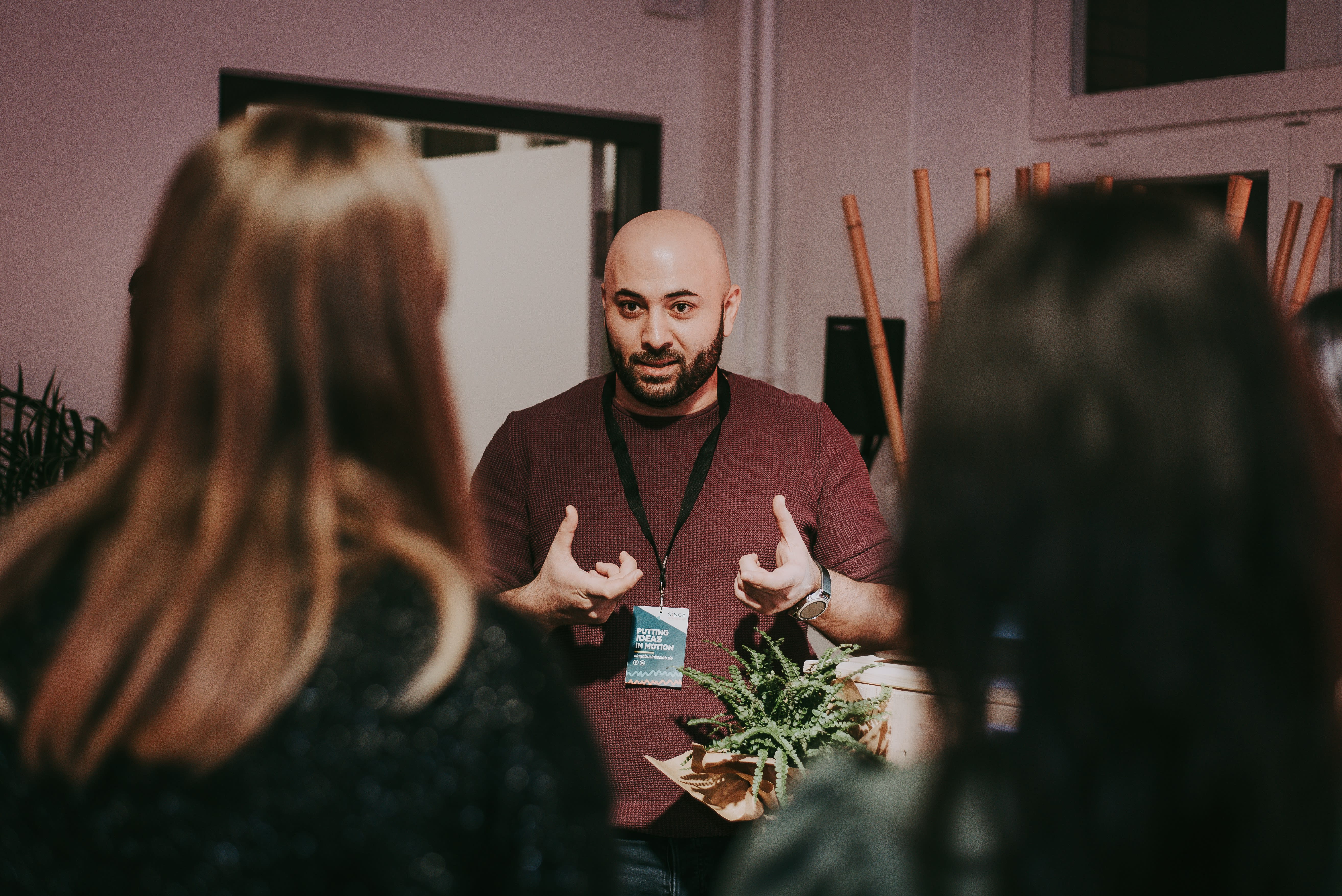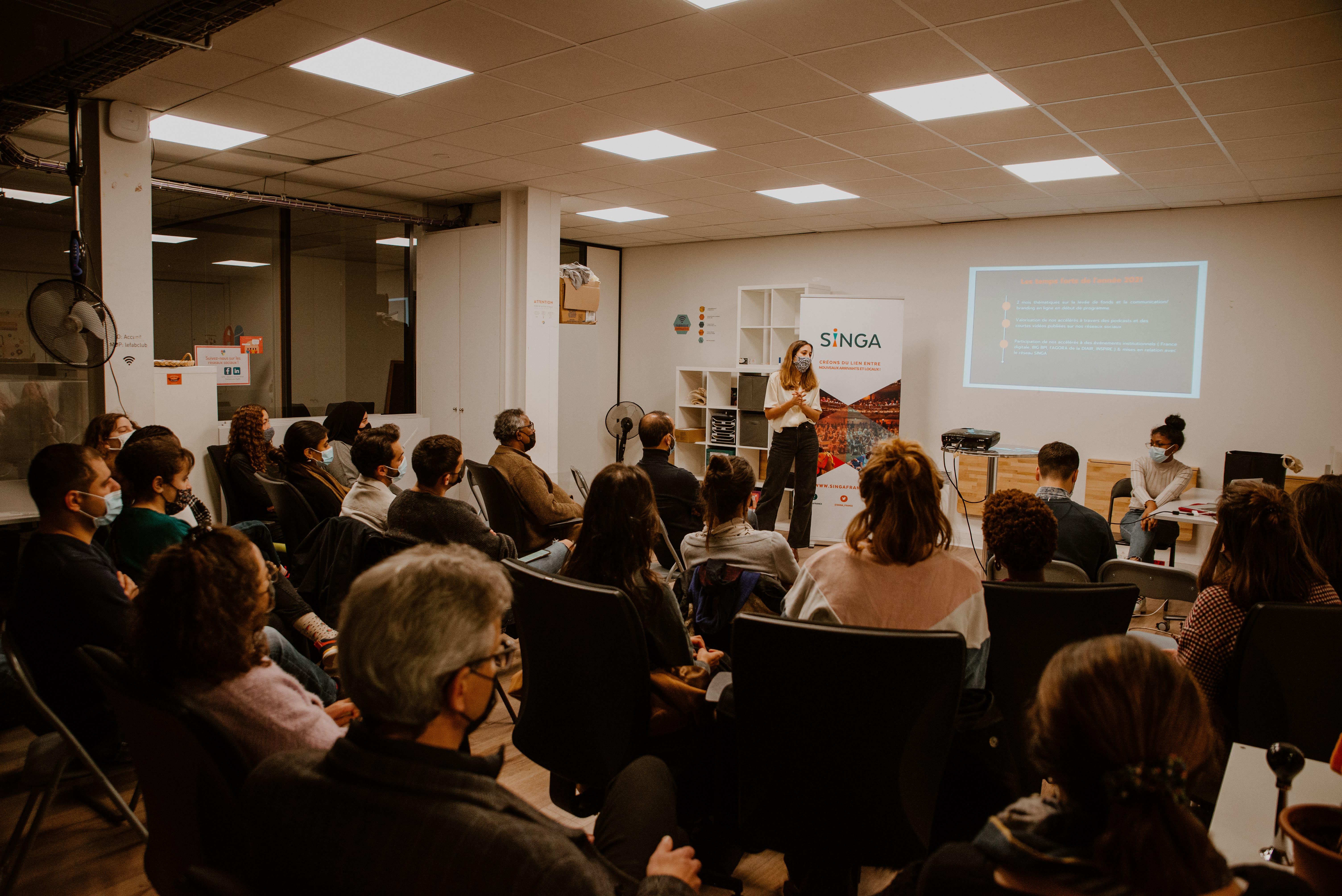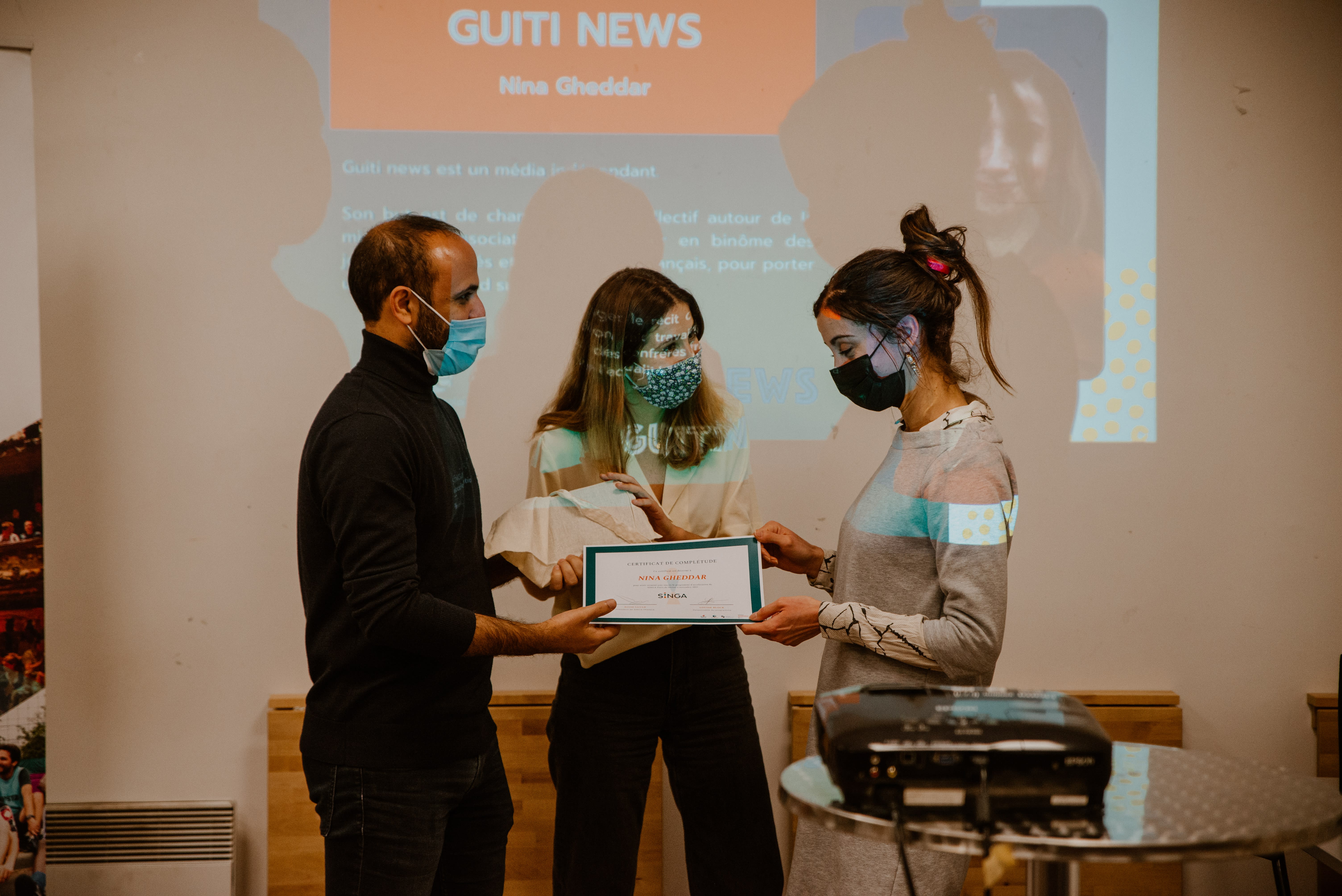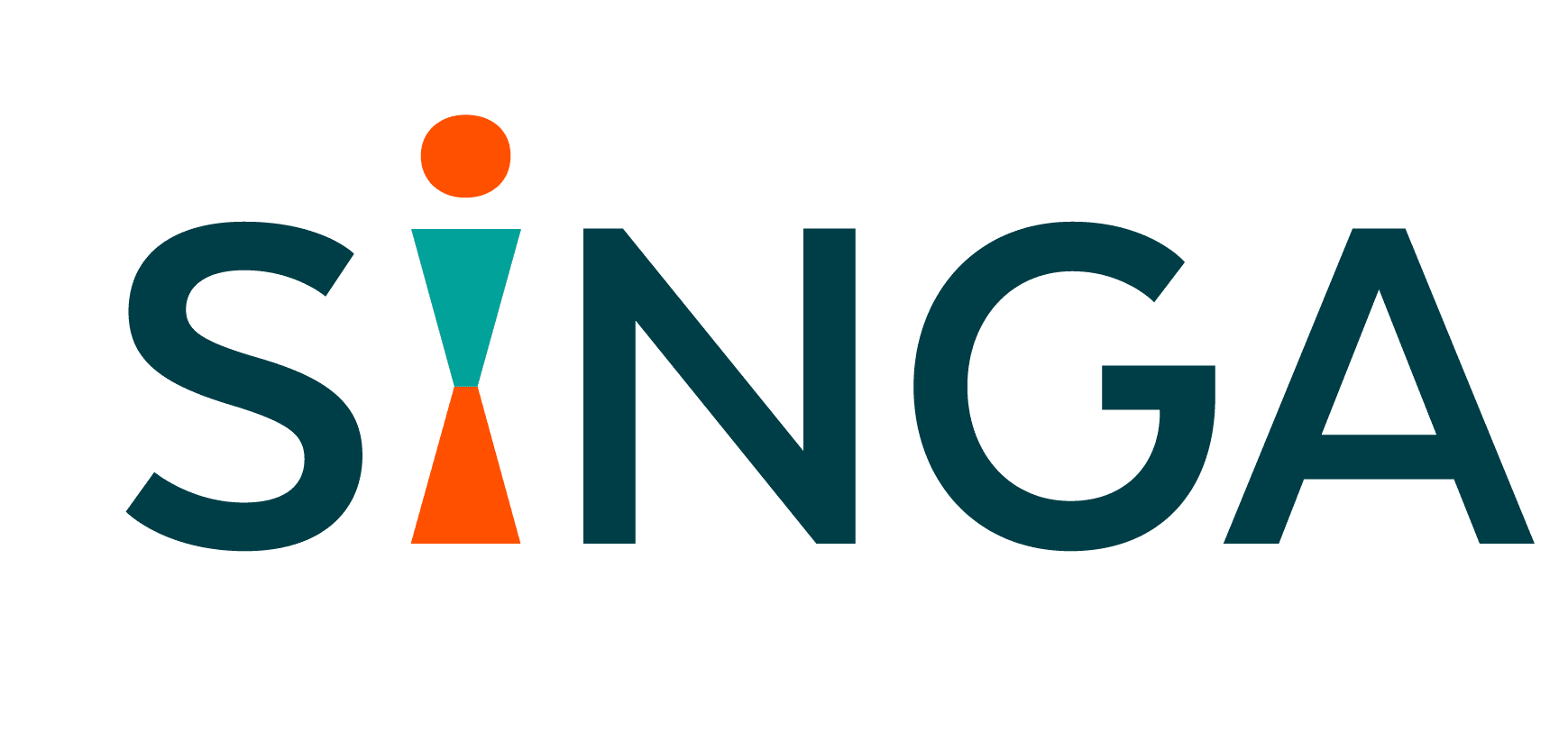SINGA stands for the idea of a world in motion. Movement to bring ideas, opinions and individuals together. Movements in perceptions. Movement in stereotypes, preconceived ideas. Because no desirable social project emerges from immobility and withdrawal.

SINGA is an international organization created in 2012 by Guillaume Capelle, Nathanaël Molle and Alice Barbe. It brings together locals and newcomers (refugees, asylum seekers...) and encourages them to engage together in social, professional and entrepreneurial projects. SINGA in the world is :
- A community of more than 50,000 members (locals and newcomers) gathered around common passions, skills or projects
- A presence in 7 countries and 17 cities with local and inclusive entrepreneurial paths
- A virtuous ecosystem (community, leaders and institutions) that invents the future of migration, and aims to create a society rich in its diversities
Since 2012, SINGA’s activities prove that social and economic innovation stems from migration and social connections. Each encounter, each programme, each structure created by SINGA becomes the foundation that allows us to build tomorrow’s society.

Today, 80 million people (1% of the world’s population) live in exile (UNHCR). This number will rise to 300 million by 2050 (UN), with the acceleration of global warming and the political and economic unrest in certains countries. Europe plays a significant role in welcoming these populations, but struggles to create solutions that truly foster the inclusion of newcomers.
The word “migrant” often conjures an image of a shapeless, precarious, and dangerous figure without any individuality. This biased perception triggers debates around national security and polarised societies, creating a “us” versus “them” narrative. A pointless concept, as Professor Otto Scharmer (MIT) highlights : this idea of “us” can fluctuate and expand to include more and more profiles as time goes by.
We refuse to see migration uniquely as a humanitarian or security issue. We must quickly and radically change how society at large approaches migration : it is a great opportunity to meet new people, give meaning to our lives. It provides economic opportunities, limitless knowledge and permanent cultural enrichment.
What if the world was more reactive to environmental and social change? What if each citizen of the world was no longer limited by his/her nationality, but could thrive with their own plural and dynamic identity? What if we could benefit from others’ experiences, knowledge and skills?

